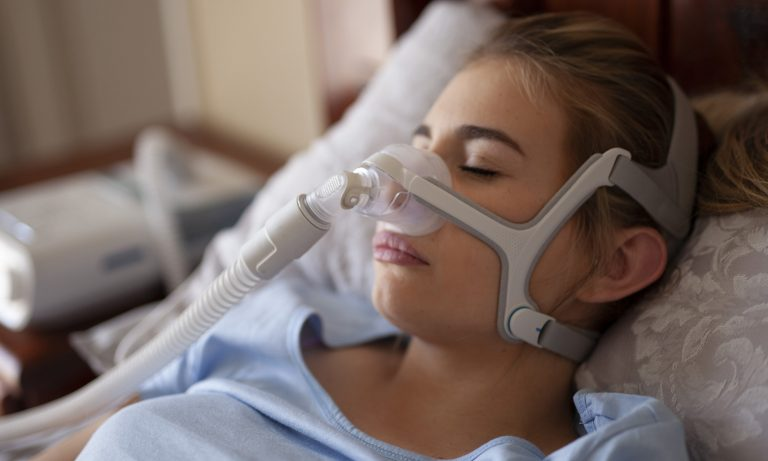No one likes to wake up while trying to sleep. Furthermore, those who snore, have sleep apnea, or are side sleepers are more likely to experience sleep disturbances. If you are one of the many people who snore or have sleep apnea and you are looking for treatment options. Here are methods to prevent sleep apnea and snoring.
Reduce weight
People who snore, have sleep apnea, or are overweight may find that decreasing their weight helps to ease these symptoms. Doctors often recommend weight loss to obese individuals with sleep apnea or snoring. Obesity may increase the probability that nasal passages and airways may get blocked, especially in the upper body. You start to snore as a consequence.
Obesity-related breathing problems during sleep may cause a sudden, protracted slowdown of the respiratory cycle. According to research, obese people may not need as much CPAP therapy or upper airway surgery after a minor weight loss. Occasionally, losing weight may treat snoring and sleep apnea. If you lose weight, however, the issue can resurface. Weight loss is important if you gained weight and then acquired snoring and sleep apnea, but not everyone needs it.
Exercise
Exercise, which may help with sleep apnea and reduce snoring, is an alternative to a CPAP machine to take into consideration. One’s energy level increases with regular participation in physical activities like yoga. It lessens sleep apnea, encourages relaxation, and fortifies the muscles and heart. Workout improves both your ability to breathe and the amount of oxygen you take in. Exercise may help raise and maintain oxygen levels since sleep apnea causes a decline in blood oxygen saturation. Exercise lowers the likelihood of developing sleep disturbances, such as snoring and sleep apnea.
Lay on your side.
Snoring and sleep apnea are reduced by side sleeping. It supports sound sleep by encouraging rest. Snoring and sleep apnea are likely to happen if you mostly sleep on your back. The airway is greatly narrowed when resting on one’s back while sleeping. The tissues of the chest, abdomen, and neck add weight to the throat while one is lying down, obstructing the airway and resulting in snoring. The good news is that the remedy is as simple as sleeping on your side. Sleep interruptions are reduced when you sleep on your side. Modalert 200 also can help to treat Sleep Apnea.
Refrain from drinking.
Contrary to popular belief, both alcohol and sleep medications may make you drowsy, but they can also reduce the quality of your sleep. You are more likely to snore or develop sleep apnea if you consume alcohol or use prescription or over-the-counter sleep medications at night. If you use alcohol or sleep aids, your chances of having a collapsed airway while you are sleeping increase.
Employ oral devices.
Treatment for sleep apnea and snoring may include oral devices. Each patient’s mouth appliances may design specifically for them by dentists. They pay attention to your lips instead of your nose. To make extra space in your mouth, they reposition your soft palate, tongue, and jaw. The upper airway may become bigger if one of these devices is used while you’re sleeping. To keep your teeth in the best possible condition, schedule a visit with your nearest dentist. Waklert 150 is oral medication can help in sleep apnea.
Utilize a humidifier.
These are things that add moisture to the air. Snoring and sleep apnea are brought on by the disruption of the airway membranes by dry air. A humidifier might make breathing easier, relieve congestion, and widen the airways. Due to their relaxing and anti-inflammatory qualities, essential oils like peppermint, eucalyptus, and lavender may use in a humidifier. If you have a cold and are congested, this could be helpful.
Utilize nasal strips and dilating equipment.
Nasal dilators and strips may apply to the bridge of the nose to widen the nasal airway. This may improve your ability to breathe and lessen or stop snoring. Another option is to use an external nasal strip, a strong adhesive strip that is placed across the nostrils on top of the nose. Breathing may become less challenging due to a reduction in airflow resistance.
There is no guarantee that the problem will be permanently resolved, even if the aforementioned ideas reduce sleep apnea and snoring. Contacting a doctor is advised since snoring and sleep apnea may lead to a variety of health problems.
Also Read: Men Can Benefit From Soybeans





